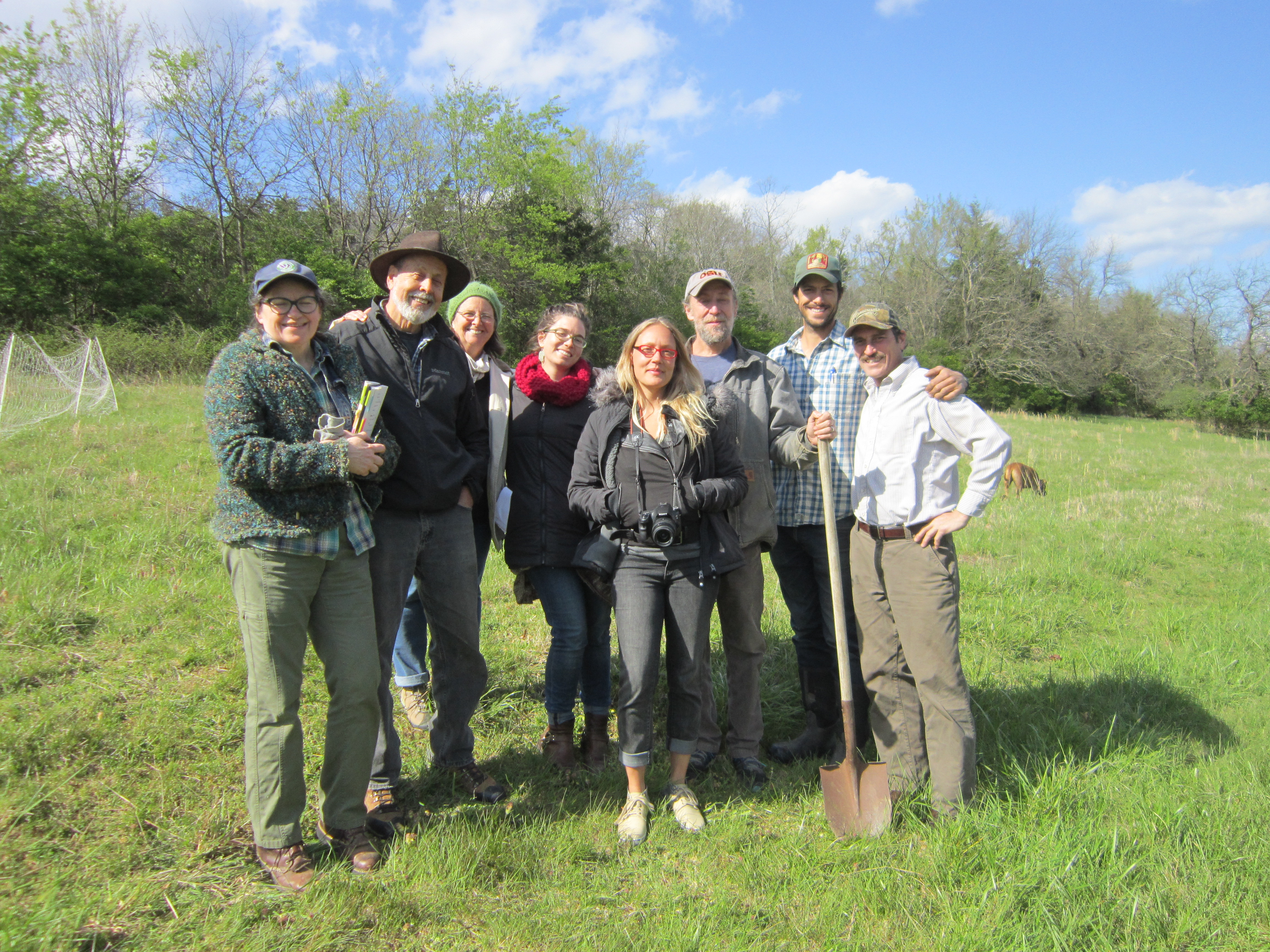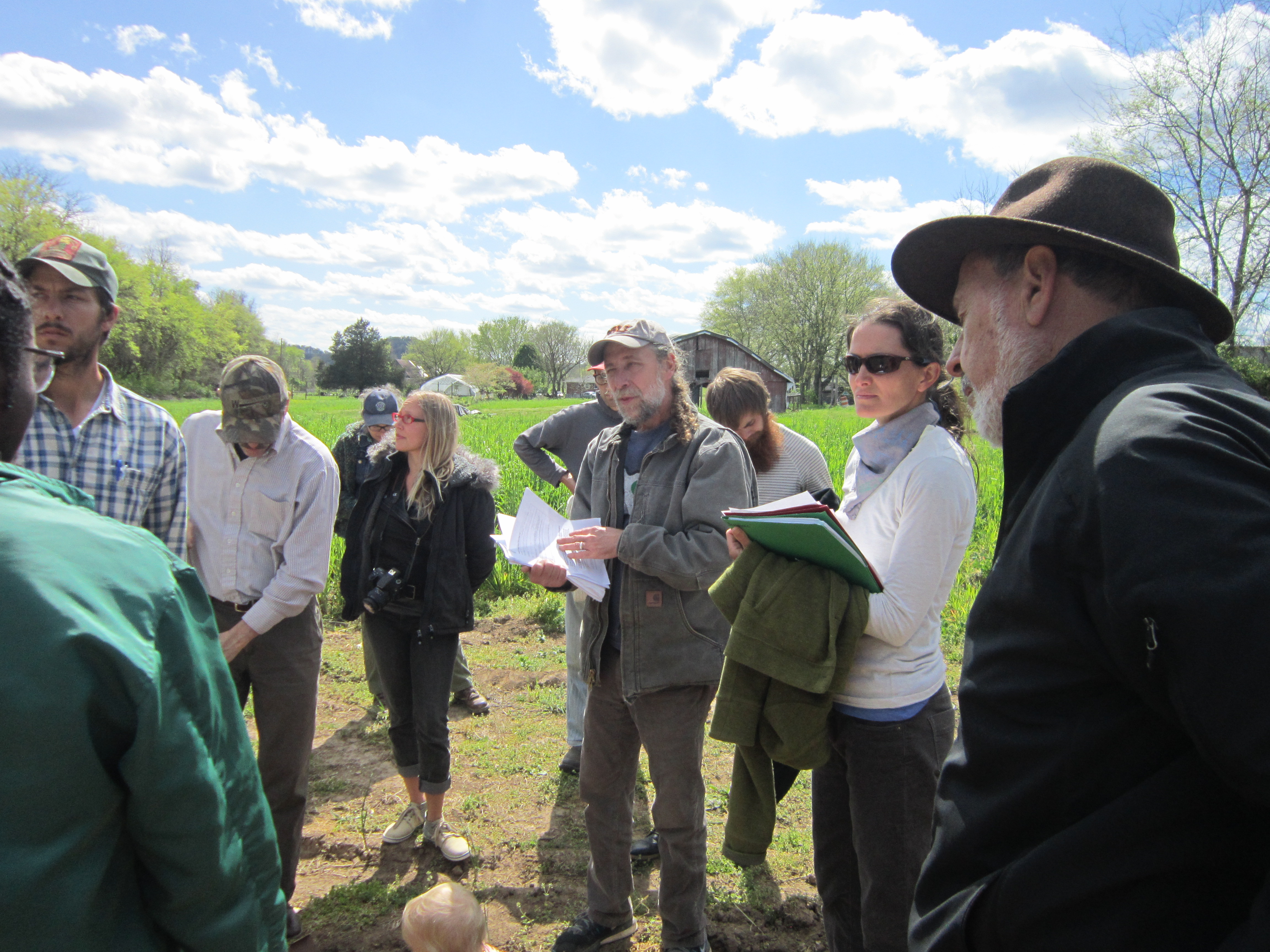
By Hilary Higginbotham
Just outside of Nashville, Tennessee, 8,000 beautiful acres of rich bottomland cradled by the Cumberland River make up an area called Bells Bend. A few years ago, community members saved this rural, agricultural land from a huge development. Bells Bend is a place where community members of all ages welcome Nashville friends and enjoy weekly potlucks, square dances, harvest festivals, and farm harvest days. Most everyone you meet in Nashville smiles broadly when you mention the farm community in Bells Bend. It’s known for sharing, dancing, amazing food, creative partnerships, and rich community history intermingling with energized young folks drawn to traditional ways and food you can feel great about.
When Jeff Poppen, the biodynamic farming “father figure” here in the Southeast, helped get several new farms started here back in 2009, a small but growing network of small CSA farms established themselves in response to the threat of development. Jeff got the fields off to a great start with huge amounts of compost and spray preparations. These farms’ recent successes have given this area a name for providing amazing food, emphasizing and expanding on the agricultural heritage of Bells Bend. Under Jeff Poppen’s mentorship, the young farmers running them have used biodynamic practices to enliven their soil, and Nashville has enthusiastically supported them.
Just as this group of farmers — who, over the last seven years, have gathered solid farm experience, encouraged their interns and farm assistants to start their own farms in the area, and begun to make their own preparations — began to envision their next stage of growth, a perfect framework came into view.
Demeter USA’s DemeterLOCAL program seemed just the thing to get these farms certified Biodynamic® and to tell Nashville why holistic, regenerative practices are vitally important. DemeterLOCAL keeps certification cost low through a peer inspection model, with Demeter USA’s supervision and final sign-off. The low cost and community aspect of the DemeterLOCAL program can support these farmers in achieving full compliance with the Demeter Standard while encouraging local support, education, and farmer bonds.
In September of 2015, Karen Davis Brown, an experienced regenerative farmer and organic inspector with connections to Demeter USA, was asked by Jim Fullmer, co-director of Demeter USA, to talk about the DemeterLOCAL program at Jeff Poppen’s Southeast Biodynamic Conference in Red Boiling Springs, Tennessee. Wet weather and other factors didn’t lead to a group discussion, but the conversation got started.
In October, Karen and I attended Laura Riccardi Lyvers’ prepmaking activities at Foxhollow Farm, an established Biodynamic farm north of Louisville, Kentucky. As we made the chamomile preparation sitting under the trees, Laura mentioned that several Foxhollow farmers might be interested in forming a combined TN-KY group. Foxhollow’s pastures and hayfields are Demeter certified, but their vegetable farmers can certify with this model. Laura’s interest was just the nudge we needed. The involvement of Laura and Foxhollow members would add diversity of experience, resources, and prepmaking expertise to the strength of our group.
We announced the DemeterLOCAL training in November and scheduled the first training session in December at Old School Farm in Bells Bend. Karen facilitated the sessions using the DemeterLOCAL powerpoint modules created by Demeter USA. Fifteen to twenty Nashville and Foxhollow Farm folks attended this and another three sessions that ran through March 2016. We were off!
Attendees were a combination of: core members of a Nashville preparation making group who met regularly for a few years at Six Boots Collective in Bells Bend; Foxhollow owners, farmers, and prepmakers; and several other supportive Nashville community members — a beekeeper, herb growers, landowners planning for future certification, and community-focused growers with enthusiasm for biodynamic agriculture. This model emphasizes education and welcomes anyone wanting to be involved in supporting Biodynamic agriculture in the area.
We reviewed the Demeter USA powerpoint modules quickly and gathered specific questions for Jim Fullmer. The modules cover biodiversity; generating fertility; disease, insect, and weed control; the biodynamic preparations; integrating livestock; water and waterway conservation; and gentle post harvest handling. Farmers at the training were clearly interested in certification and wanted to understand the requirements. We also began to discuss group decision-making and how to develop as a group. We decided to establish the peer certification framework for certifying farms first, and then consider more education and community involvement.
Resource and information sharing was considered a valuable part of the peer model. Farmers liked the accountability that the group could offer, as well as having a framework for compliance. We planned to create subcommittees for specific focus areas in the fall of 2016, and to continue to make preps together.
We also began to look for grant funding for the group’s startup costs, especially to help us communicate with the public about the value of Demeter certification, and to pay a coordinator to organize inspections, trainings, and to be the main contact with Demeter USA.
We wrote a basic business plan and coordinator job description, and began a conversation with a local nonprofit Beaman to Bells Bend Conservation Corridor (BBBCC), to explore a partnership based on our common goals. We sent them an abbreviated business plan, and their board responded that they would be open to sponsoring us with their nonprofit status for grant purposes.
Jim Fullmer visited our group in April 2016 to discuss questions, walk through a mock inspection on a local farm, and to get to know our group. We sat outside on a beautiful, chilly, and windy day at Bells Bend Park until we had to ask park staff to allow us to have our potluck lunch inside! Of course, fabulous food and camaraderie fueled us for our farm inspection afterwards.
Jim led us through the Demeter-required farm inspection reports as we examined the fields, greenhouse, and livestock grazing areas. He advised us on specifics and answered questions with sensible, approachable explanations. The requirements seemed manageable to these farmers; they’d been farming this way for years, to a large extent.
To formalize a framework of accountability, I began to put together an advisory board in May, built primarily of a few core group members. However, this has been put on hold until we clarify our partnership with BBBCC, and decide what kind of accountability structure is appropriate.
Several of our participating farms plan to apply for certification in the next year or two, but timing didn’t allow any of them to feel ready to apply for the 2016 season. During the 2016 growing season, I stayed in touch through farm visits and mock inspections, but in the end we didn’t do much connecting until fall.
Currently, we are planning to discuss whether being a program funded by Beaman to Bells Bend Conservation Corridor makes more sense than being nonprofit of our own. Meanwhile, we’re planning shared fall prepmaking tasks; a Michaelmas horn-stuffing celebration with Jeff Poppen, Waldorf educators, and the Nashville anthroposophical community; and a more dynamic way of rotating on-farm trainings for the winter 2016-2017.
Join Hilary Higginbotham, along with Jim Fullmer, Patricia Frazier, and Jeff Poppen, at Building Regional Biodynamic Communities, Saturday, November 19 at the 2016 Biodynamic Conference. Hilary is a co-founder and organizer for the TN-KY DemeterLOCAL Chapter. She also organizes community prepmaking in Nashville, based at Six Boots Collective. These two overlapping groups are the core of a growing community of biodynamic farms in Bells Bend, just outside of Nashville, that serve as a practical resource and collaborative space while encouraging people to learn about the Biodynamic preparations through hands-on immersion in the whole process: growing the herbs used in the preps, making all nine preps on site, applying them on the land, and sharing them with community members who want to be involved in the process. Hilary has been involved in the Nashville farm community through cooperative growing projects and garden education—most recently of the biodynamic prep plants and medicinal herbs, foraging, and experiential garden education gatherings.


Add new comment